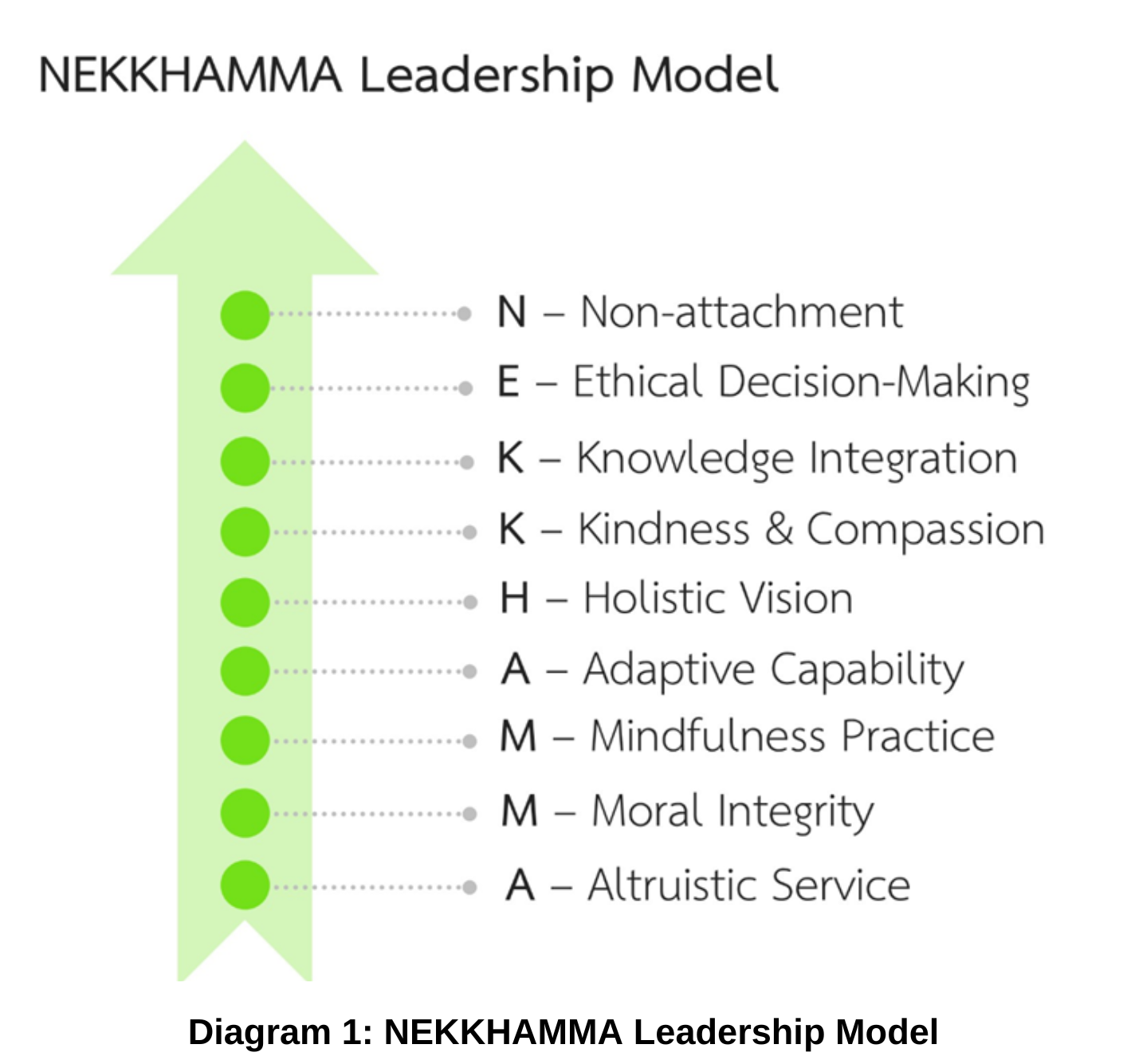Leadership Development through the Perfection of Nekkhama Parami
Keywords:
Development, Leadership, Leadership Development, Nekkhama ParamiAbstract
This qualitative documentary research aimed to (1) examine the meaning, principles, and essential aspects of Nekkhama Parami from the Tipitaka, commentaries, and related Buddhist scriptures, (2) analyze leadership concepts and components from documents and research in the fields of management and leadership development, (3) synthesize the relationship between the principles of Nekkhama Parami and leadership development, and (4) propose leadership development approaches by integrating Nekkhama Parami in dimensions consistent with the current social context. The findings revealed that (1) Nekkhama Parami referred to the renunciation of sensual pleasures and attachments in order to cultivate emotional stability, concentration, and wisdom, which were essential qualities of moral leadership; (2) effective leadership consisted of vision, ethical decision-making, integrity, adaptability, and the development of followers, which were consistent with the principles of Nekkhama Parami; (3) the practice of Nekkhama Parami enhanced impartial decision-making, reduced bias, and built credibility within organizations; and (4) the proposed leadership development approaches included mindfulness and meditation training, the use of Buddhist case studies, the creation of moral leadership assessment systems, and integration with modern leadership theories. The new knowledge generated from this study was the “NEKKHAMMA Leadership Model,” a leadership development framework integrating the principles of Nekkhama Parami with global leadership theories to create leaders with both moral integrity and managerial competence, addressing the needs of 21st-century society.
References
พุทธทาสภิกขุ. (2546). คู่มือมนุษย์. กรุงเทพฯ: ธรรมสภา.
มหาจุฬาลงกรณราชวิทยาลัย. (2556). พระไตรปิฎกภาษาไทย ฉบับมหาจุฬาลงกรณราชวิทยาลัย. กรุงเทพฯ: โรงพิมพ์มหาจุฬาลงกรณราชวิทยาลัย.
Bass, B. M., & Avolio, B. J. (1994). Improving organizational effectiveness through transformational leadership. Thousand Oaks, CA : Sage Publications.
Chatchai Prukamnouy. (2018). Leadership ethics and organizational trust: An empirical study in Thailand. Southeast Asian Journal of Management, 12(2), 101–119.
George, B. (2003). Authentic leadership: Rediscovering the secrets to creating lasting value. San Francisco, CA : Jossey-Bass.
Greenleaf, R. K. (1977). Servant leadership: A journey into the nature of legitimate power and greatness. New York : Paulist Press.
Masukree, T. (2022). Buddhist principles and sustainable leadership in modern organizations. Journal of Buddhist Leadership Studies, 5(2), 45–60.
Northouse, P. G. (2019). Leadership: Theory and practice (8th ed.). Thousand Oaks, CA: Sage Publications.
Phakamach, N., Nopparat, S., & Kongsom, K. (2021). Ethical leadership and trust in the workplace : A Buddhist perspective. Journal of Moral and Ethical Studies, 3(1), 12–25.
Phra Brahmagunabhorn (P.A. Payutto). (2552). พุทธธรรม. กรุงเทพฯ : สำนักพิมพ์มหาจุฬาลงกรณราชวิทยาลัย.
Rungreung, S. (2020). Buddhist-based leadership development model for organizational sustainability. Journal of Buddhist Management Studies, 2(1), 1–20.
SCIRP. (2023). The role of moral integrity in effective leadership: A comparative study. Open Journal of Leadership, 12(3), 115–129.

Downloads
Published
How to Cite
Issue
Section
License
Copyright (c) 2025 Institute of Sufficiency Journal

This work is licensed under a Creative Commons Attribution-NonCommercial-NoDerivatives 4.0 International License.



